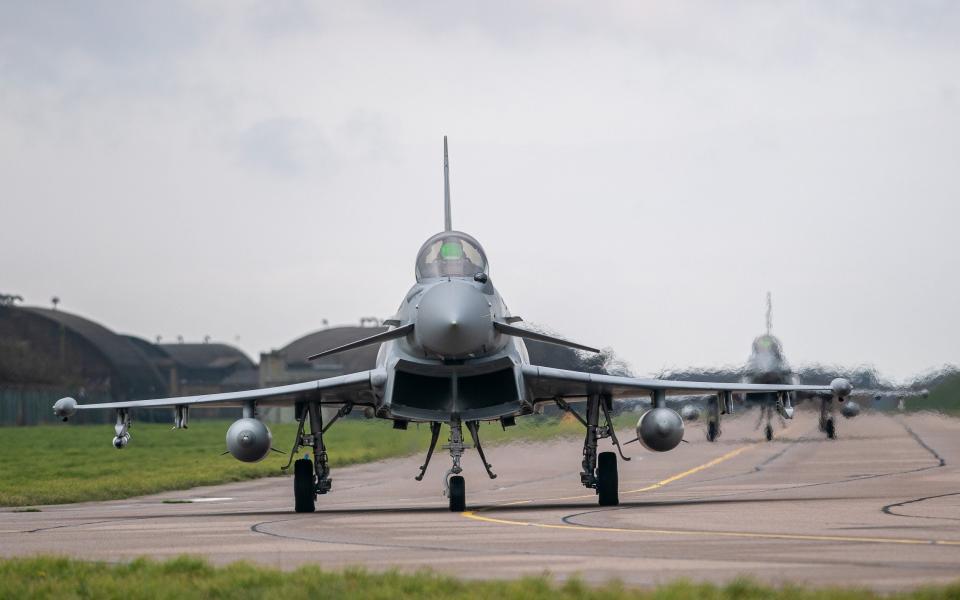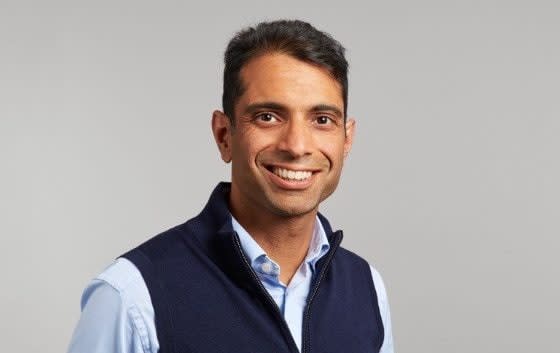Home working deals blow to defence companies in race with Russia and China

The rise of home working has left defence companies unable to hire crucial talent as they attempt to counter Russia and China, one of the industry's largest players has said.
Shonnel Malani of private equity firm Advent International, which owns defence stalwarts Cobham and Ultra, also said top scientists are being lured to huge technology companies with greater flexibility and deep pockets.
“We have engineers leaving and you say, what happened?” he said.
“And they say, I got a call and they said you can live where you live, you can work from home five days a week, we'll double your salary and just come work for us. And I’m not sure what you do with that.”
Unlike big tech, the defence industry requires large numbers of staff to work from an office – particularly if they are involved in production of components, or developing secret systems that require additional security.
The challenge comes as arms makers grapple with replacing large numbers of experienced workers in their 50s and 60s who are contemplating retirement.
“The war for engineering talent in particular is quite hard at the moment,” said Malani, 43, who is chairman of both Cobham and Ultra.
Defence companies are corralling more and more information from complex sensors including detailed cameras, sonar devices, radio listening technology and radar.
Combing through it all means harnessing artificial intelligence (AI) – and for that, companies must tap up the kind of talent normally found in Silicon Valley.
“As the defence sector innovates, and moves into more electronics, more AI, more software, more autonomous innovation, the engineering talent starts to overlap more and more with the big tech companies,” Malani said.
But these skills come at a price. The perks normally found at tech companies include remote working and US-style big pay packets.
The situation is not critical, and there are always candidates who want a career in defence to defend their homeland.
But for younger scientists, the lure of a safe job in defence engineering is less of a draw than it used to be.
“The goal is how do you keep them excited about their career trajectory,” Malani said.
“They're more interested in what could be exciting, and they're not very focused on the stability of the next 20 years, they are actually more intrigued by the next opportunity. And if that opportunity is at a different place, it's fine.”
The retrenchment of big tech companies, which have sacked more than 100,000 workers around the globe since the start of the year, has thrown up a few candidates for hiring.
“There's a little bit of an opportunity, which is good, and defence is in a much more stable position,” he added.
“A big push is on to get young, talented people, particularly the under 30s.”

Cobham and Ultra have set up a £5m fund to offer scholarships to 500 students from poorer backgrounds who would not normally consider a career in defence, working alongside universities including Oxford, Strathclyde, Nottingham, and Northumbria.
They want to hoover up more leavers with doctorates who can find solutions in six big areas of growth for defence in the coming years.
Autonomy for ships, submarines and warplanes, which will move without pilots, is a key area of research, and that means competing with the likes of Google and Tesla which are trying to make the same strides with cars.
Militaries also want to use artificial intelligence to dig out data from satellites, radio chatter and other sources, combine it with information from allies and deliver speedy warnings about troop movements, missile tests and other events where time is of the essence.
“Today, it's very manual. It's fairly disjointed,” Malani said.
“And there's a lot of time that elapses between something being sensed, and people being able to take action on it, because they need to join up lots of bits of it.
“Everything around artificial intelligence, machine learning, is going to grow massively.”
All of this means developing secure information systems with cybersecurity experts – the third area of growth – using satellites and other assets in space, the fourth opportunity, meaning a large overlap with the technology sector.
The growing threat of Chinese and Russian hypersonic missiles will also be a big area of growth.
China in particular is developing weapons which can travel at five times the speed of sound, making them very hard to hit and leaving aircraft carriers particularly vulnerable.

The first challenge is detecting these weapons early enough to have a chance at interception, before then trying to hit the weapons to destroy them.
As with executives at other companies developing solutions for the missiles, including Raytheon in the US, Malani is tight-lipped on how much progress is being made.
Finally, anti-submarine warfare will grow in importance as China expands its underwater fleet.
Advent hoovered up Cobham in January 2020 and Ultra last year, both times meeting resistance from politicians who worried about jobs being lost.
While some parts of the businesses were sold off, Malani insisted that other companies have been bought and Advent is a good home for them.
Cobham was famed for its air-to-air refuelling businesses, which Advent sold to power management company Eaton in 2021.
It now makes radio electronics to work in space, parts for electronic warfare and satellite systems.
Ultra posted a £30m profit for 2021, down from £46m for the year earlier. In the same year Cobham booked a £1.1bn profit after a £705m payment from the sale of its mission systems business.
Private ownership of the companies has offered them respite from quarterly reporting and allowed for some longer-term thinking on developing new defence products, Advent has said.
The company last year bought Maxar Technologies, a satellite business. Advent plans to further expand in space to cater for the intelligence services.
“We can build additional satellites that the company cannot afford to do in a public context, because we can accelerate that investment,” said Malani, who started his financial career at Morgan Stanley as an analyst before moving into private equity at Bain Capital.
He earned an MBA from the Wharton School of the University of Pennsylvania in 2009.
Advent bought the companies at an opportune time. Since it acquired Cobham, the value of UK defence companies has grown by 20pc.
Much of the gain has been driven by the invasion of Ukraine by Russian President Vladimir Putin.
The war kicked off a race among Western powers to increase their defence spending, and hundreds of billions of euros have been committed to bolstering existing projects as well as bold new programmes.
The FTSE 350 aerospace and defence index, whose members include BAE Systems, Babcock and Qinetiq, is up by 50pc since the start of last year.
The Aukus deal signed last year to develop next-generation submarines with Australia and the US ought to aid Ultra’s business as it makes technology for the vessels.
Ultra is known for its so-called signature management systems which help hide Royal Navy submarines. The company also develops sonar to detect other vessels.
“We are very well positioned when it comes to sonar and signature management for Aukus,” Malani said.

 Yahoo Finance
Yahoo Finance 